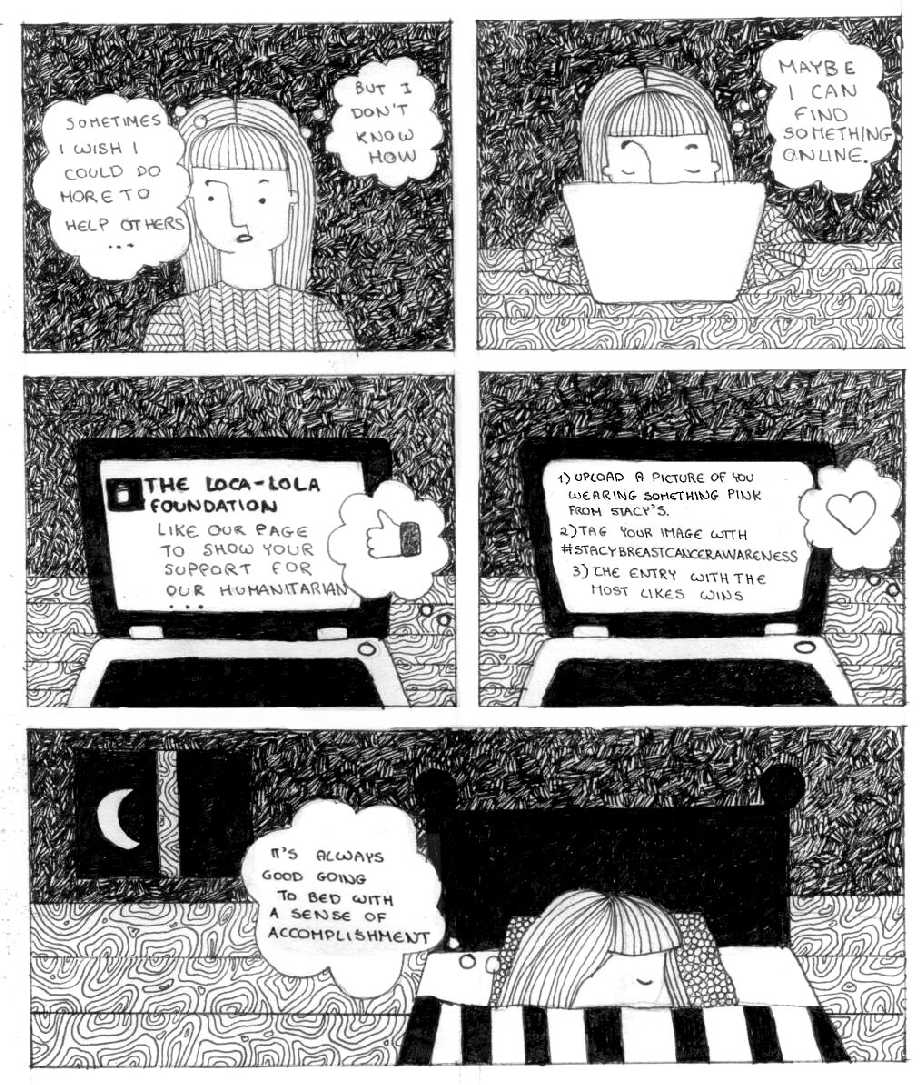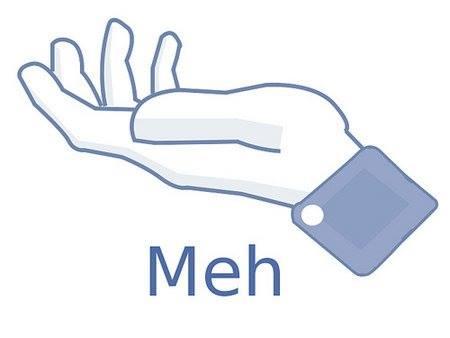I like. You like. He likes. She likes. We like, and we like a lot. Three billion two hundred million of mostly likes but also comments have been generated by users daily in the first quarter of 2012 according to Facebook.The counterpart of an 'I dislike' or Hate button is neither existing nor is it planned. An efficient trick: Facebook barely needs to discipline its users, instead it rather designs their actions, and these are positive. It is not that there can’t be disagreement on Facebook. It is only that its utterance is made more elaborate as it needs to be declared in the comments. Thus, it cultivates the approach of agreement instead of critique with a design that visually prefers affirmation. At first sight, this approach of Facebook can be explained by the fact that friends generally have positive things to say to each other. They have some things in common, respect each other, and share some interests. Facebook, however, isn’t simply a network of friends, but of several millions of friends. This is precisely why the affirmation cultivated on Facebook has a social dimension – it is much more than just a private matter among friends. When its basic design avoids the dialectic order of the modern discourse, for or against, to replace it with the affirmative proposition 'I like', it unfolds a discursive style that is about to become more and more dominant in our societies: the rise of an affirmative discourse. Can critique be saved?
Facebook’s design clearly imposes the discourse of affirmation upon us, but when we look around (which we will do in a moment) we can also sense it in society, so its appearance in Facebook might well be nothing but a social trend a smart developer like Mark Zuckerberg decided to take up. With Facebook making affirmation apparent, let us now turn our attention to the political reality we live in, in order to see if we can sense it being used as a tool in today’s social discourse of power.
In politics, the degeneration of the dialectical order has been evident for some time in both domestic and foreign affairs. Concerning internal politics, the old categories of 'right-wing' and 'left-wing' parties,established for the seating arrangement of the French National Assembly of 1789, have been questioned in most industrial states.
Concerning foreign affairs, the division of an east and a west bloc collapsed with the fall of the Berlin wall. So where to now that the dialectical order has fallen apart? It must be said, that the idea of a ‘third way’ didn’t take us very far.Today, it slowly becomes apparent that a certain type of affirmation has widely replaced opposition, and the British government’s attitude towards the European Union is a very good example of this.
While Thatcher’s political power is clearly visible in her negation of the EU, Cameron’s power enacts the same but operates subversively under the cover of affirmation: it’s not his fault that he vetoed a fiscal pact 25 other EU states had agreed to join, he wanted an agreement.
Playing hide and seek in a globalized world is how power in the era of affirmation operates: dodge responsibility, just indicate good will – we are not the ones responsible, indeed we also don’t like this problem and agree with you. This discursive style – duck and cover with affirmation – has already found its talking head in the humble Rupert Murdoch, a businessman who claims not to be responsible for his business, the company News International. Today executives just sign, but don’t leave signatures in their company’s culture. Illegal phone hacking, as it came to light in the scandal of July 2011, might have been a practice in not just one, but several of his publishing houses. Yet still, he explicitly stated he would not accept his ultimate responsibility and instead handed failures down further and further until they were out of his reach and rested with the regular guy on high street: ‘I hold responsible the people who I trusted to run it and the people they trusted.
Negative critique has been conceptually important for pushing our societies forward. Hegel, for example, gave it a central role when he described that an existing condition is enhanced by its negation, and both the condition and its negation, are synthesized and ‘sublated’ to a new level. ‘That which enables the Notion to advance itself’ he says, ‘is the already mentioned negative which it possesses within itself; it is this which constitutes the genuine dialectical moment’. It is the negative that ‘enables to advance’ as it introduces progress to a society, for even in its most general sense of faultfinding, negative critique aimed to make the world better (despite cynics who might object, saying it made the faultfinders feel better). Negative critique was about improving, and if critique no longer reaches the one it means to oppose, one has to ask ‘how can our societies make progress?’
Clearly dialectics as much as negative critique hasn’t just been a philosophical concept. Far beyond the critical theory of the Frankfurt School, they are central to human emancipation, and their signature left a deep mark on modernity in general and democracy in particular. All democratic societies rest on the assumption that we have a government and an opposition that by negating the government’s policy doesn’t simply control it, but also challenges it for the better, as in progress. Opposition in the form of positioning a left and right structured our public social life, parliaments, as well as newspapers and media organizations. Thus, when the concept of critique is at stake, our modern democratic societies have reason to worry.
(Text originally published in 'Unlike Us Reader')






